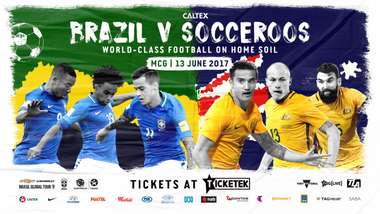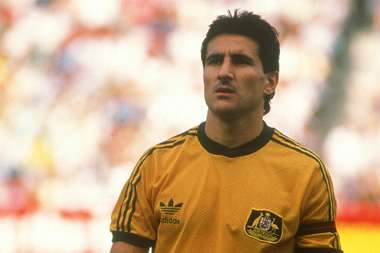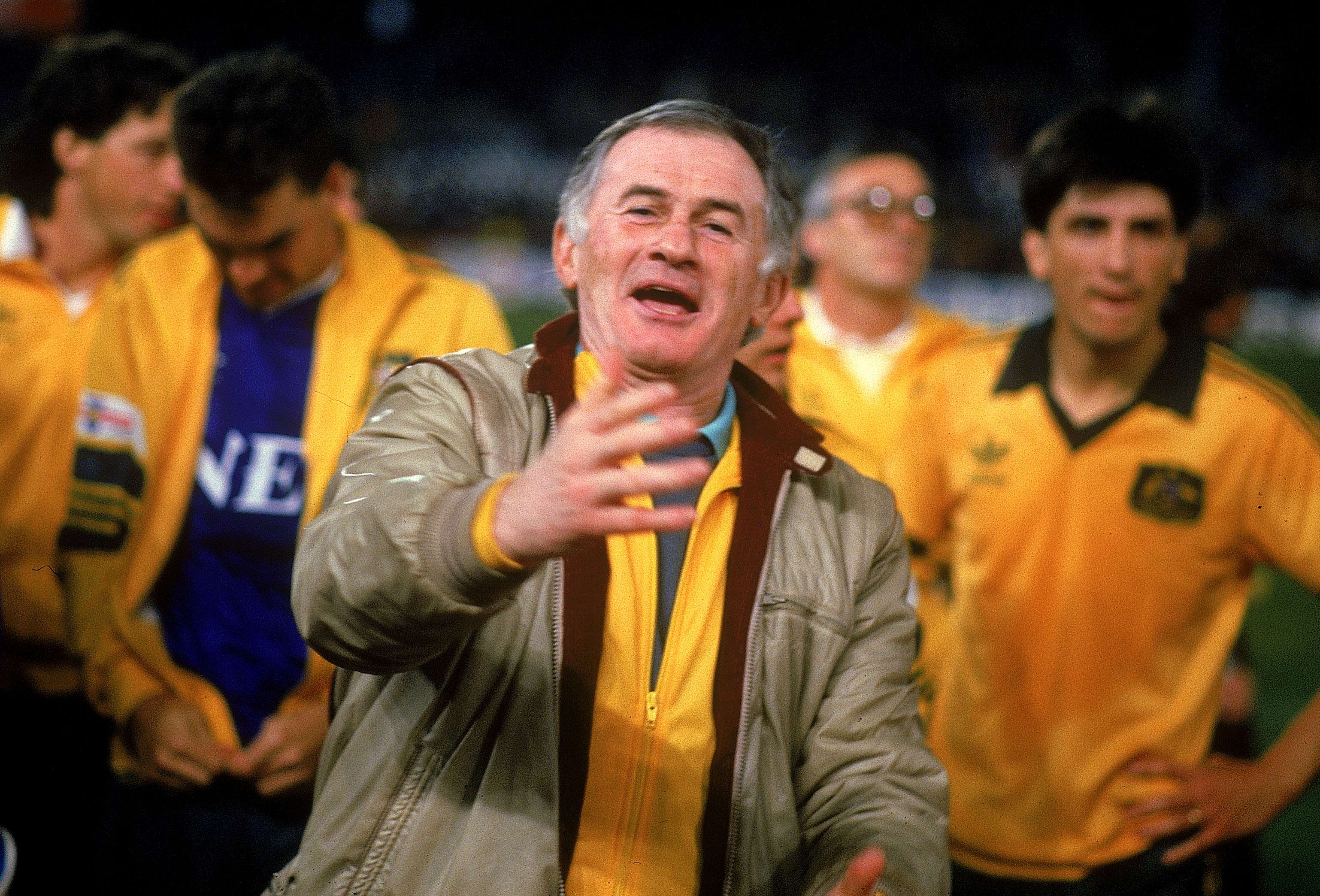This week the Chevrolet Brasil Global Tour hits Melbourne as five-time world champions Brazil return to Australia for the first time in three decades.
The Selecao meet old rivals Argentina at the Melbourne Cricket Ground on Friday before facing hosts Australia at the same venue four days later.
 READ MORE:
READ MORE: 
EXCLUSIVE: Paulinho's back! | New faces eye Brazil role | Argentina hit jackpot with Sampaoli
Brazil are back in Melbourne where they last played way back in 1988, when they marched to the Australia Bicentenary Gold Cup title.
The celebratory tournament was held to mark Australia’s bicentennial. AFC Asian Cup winners Saudi Arabia and current world champions Argentina were invited to take part.
Brazil joined the party as something of a VIP guest, the attendance of the world-renown Selecao seen as key to helping promote football in the country.

As David Goldblatt notes in The Ball is Round, “Football arrived in Australia unformed, before the rules had been settled in Britain… the ludic genes of football carried by colonists to Australia would mutate to create a distinct sporting species.”
By the late 20th century, the sport was growing Down Under but remained way behind cricket, rugby and Aussie Rules in the national consciousness. The tournament would be broadcast to 60 countries around the world.
The local federation was desperate to bolster their accounts in order to finance a number of programmes necessary to increase interest in football.
The government, meanwhile, as noted by the leopoldmethod.com.au, believed that embracing the most multicultural participation sport in the country would help advance the nation sociologically.
The tournament kicked off on July 7 1988 as the Socceroos hosted the Selecao at the Olympic Park Stadium.
Nelsinho’s fluffed effort bobbled through a crowd of players to find the predatory Romario, who poked home the only goal of the game on the half-hour mark.
And the 0-1 defeat to Australia served as a confidence boost to the unfancied hosts.
“Before the tournament a lot of people didn’t believe in our ability at all,” Australia captain Charlie Yankos told Socceroos.com.au.

“They all thought the Gold Cup tournament was going to be contested between Argentina and Brazil. At that point in time, we had to start believing in ourselves a little bit more."
“We played our first game against Brazil and although we lost 1-0 in Melbourne, we played exceptionally well and felt very comfortable. I think people after that thought these guys can go okay.”
They went more than okay. While Brazil managed just a goalless draw against old rivals Argentina in the group stage, Australia sealed what was perhaps the most famous result in their history to date when they met the hermanos.
The Socceroos defied the odds at the newly opened Sydney Football Stadium on July 14, marching to an incredible 4-1 win over the reigning world champions.
It was the biggest result in Australia’s football history up to that point, certainly qualification for the 1974 World Cup and the subsequent draw with Chile in 1974 which gave them their first ever World Cup finals point.
“I want you to be mesmerised by the idea that you are the generation to change everything,” coach Frank Arok told his players before kick-off. They went out and mesmerised the entire nation.
 Getty
Getty“We were the minnows, there were a lot of part-timers and there was a lot of expectation that Argentina were going to kill us,” said Yankos, who hit a stunning 35-yard screamer in the rout.
“For us to go out there and be very, very competitive and come out with a result like that was something extremely special for every player.”
Brazil and Australia would meet in the final after both sides saw off Saudi Arabia to seal first and second place, respectively, in the group stage of the competition.
While there were concerns about the appetite for the game prior to the Gold Cup’s kick-off, Australia had captivated the locals and more than two-and-a-half thousand of them were queueing for tickets from 10:30 that morning.
Brazil would run out 2-0 winners in the final in Sydney as the fit-again Muller added to Romario’s opener. But as local newspaper The Age put it, “Australia won the Bicentennial Gold Cup soccer series yesterday everywhere except on the field.”
“Everyone from coach Frank Arok to captain Charlie Yankos to the fans who poured in from the suburbs could not stop talking after the game about Australian soccer’s bright future.”
